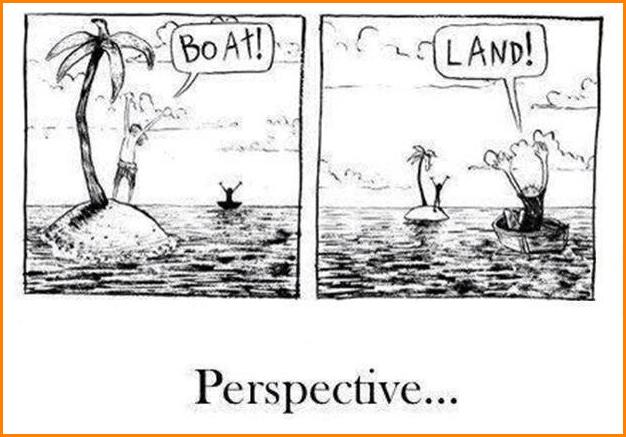Autem Acta
"Only the very weak-minded refuse to be influenced by literature and poetry" C. Clare
viernes, 1 de mayo de 2015
Blog of The Blog: A New Tool
martes, 28 de abril de 2015
More Than Meets the Eye
In 1877 Henry James wrote a novel called Daisy Miller inspired
out of a rumor he heard from a friend of a girl traveling to Europe with her
mother and brother and getting into some sorts of flirtatious conflict with men. Henry
James then wrote Daisy Miller, a rich and pretty, American girl traveling
through Europe with her mother and younger brother. Daisy wants to be exposed
to European high society but refuses to behave as a European lady of society.
Despite this, Daisy Miller seems to have an attractive attitude of being
carefree and ongoing with other people, especially men. She met a man named
Winterbourne who seem to feel some sort of attraction for her because she is
not easy to figure out and because of such, he is mystified by her. Winterbourne with time start questioning,
along with other individuals, the behavior of miss Daisy Miller. She acts to
careless and seem to be a flirt with any man. Daisy had met a man named Mr.
Giovanelli. While not much is said about him, it seems he too, is careless
around and with Daisy. One night as Winterbourne was passing over a coliseum,
he spots Daisy and Mr Giovanelli together. He thought of this behavior as
reckless, irresponsible and self-respect lacking. However he was still
concerned about the health of Daisy Miller. It was said that many people that
spend the night outside in the moonlight could contract Malaria, known as
“Roman Fever” He confronted Mr. Giovanelli with this and eventually left. A few
days later Daisy became gravely ill and died of what seem to be Malaria. Before
leaving the world behind she said some final words, directed towards Winterbourne.
She said she cared for what he thought about her, even though she said nothing
before. Winterbourne then, began to question if he had misjudged Daisy as a
reckless woman and a flirt. It seemed there was much more to her than meets the
eye. He realized, deep down she was being herself. She did not let society
dictate her behavior neither as a woman, nor as a high class of society. She
opted to live a life carefree of what others thought. Clearly she might have
projected herself badly, but she was never a bad person. The moment she died
and Winterbourne realized this by her words, he felt overwhelmed and had to
leave Europe for some time, he had lived far too long in Europe. Eventually he
comes back. He needed might have needed a break to find himself and think about
who he and Daisy was other than individuals judged and controlled by society.
This teaches us that we should never judge someone entirely by their behavior.
We do not know what feeds this behavior and what background does it have. The moment
you judge and try to tell others what to do, you become slave of those demanding
words and actions, if something were to happen to that person. Words become a burden.
Here is a trailer of the Daisy Miller movie, not for underage people.
lunes, 27 de abril de 2015
Presentations of Literature Contest Winners
On Wednesday April 22, the
University of Puerto Rico at Rio Piedras celebrated the success of students
that participated in the Literature Contest that took place about four weeks
ago. The contest categories were: Short Story, Essay and Poem. The contestant
had to choose one category and write a piece of literature with their own
creativeness and ideas.
All students in the INGL3135
course, also known as Journey on Literature, had to participate in order to
earn credit. Some students saw this as an obligation and submitted whatever
piece of old literature or blog they could find from other literature courses.
However, there are always students that are willing to give the extra miles in
every little aspect of their life and in every opportunity, as random as it
might be. From the INGL3135-001 course section was two winners. A third place
essay winner, Ana V. Pérez and a first place essay winner, Marilú Crespo. These
two young women gave their extra mile in the contest despite the very last
minute notification that we had to participate.
The essay of Marilú Crespo,
a young and astute accounting student aspiring to
become a lawyer, was called “Do Witches Get Financial Aid?” They essay is about
how some people (mostly students) get favored in obtaining financial aid over
others. She establishes that maybe by being a witch and having mystical power
she might land a scholarship of some sort by getting a high score on the LSAT,
which might ease her law school debt. She also wrote about how law school
aspiring students, have to earn a “useless” bachelor’s degree before being able
to apply to law school, instead of being allowed to pursue their dreams from
the first instance and focusing in passing the impossible LSAT with a score of
170-180 so they could get a chance at the so “mystical scholarship” that very
few people are able to obtain through questioning means. With no doubt this was
an essay winner, not only was she able to establish a situation most aspiring
law students go through, but she also brought it forth with creativity and a
sarcastic tone that one can easily find amusing.
domingo, 19 de abril de 2015
Perspective Conference: An External View
Last Wednesday on April 15, I went to the Perspective of Puerto Rico Conference at the Amphitheater of the University of Puerto Rico at Rio Piedras. For the past four weeks the Journey On Literature course has been working on presentations regarding perspective of Puerto Rico from virtual sources such as Twitter.com, forums and travel sites. The presentations were focused on positive and negative opinions and reviews of the island from Americans and Spaniards regarding their experiences here on Puerto Rico.
On the presentation, students discussed the social, cultural, economic and political point of views and perceptions from the websites. Other groups focused on how tourists criticized the island not because of the sites and places they visited, but because of the puertoricans and their ways. Through some of the reviews, they found that some Americans do not read and get informed before commenting. For example, some comments showed that some people do not know puertorico is located in the Americas, others did not know we are a Commonwealth of the United States or that our currency is the same as theirs. Other comments criticized highly intellectuals citizens like Sonia Sotomayor and accused them of not being United States citizens, when it is the opposite. As a Commonwealth we are citizens of the United States and as such we are not immigrants when we move from the island to the states.
Reading the comments perspective and reviews of Puerto Rico during the presentation made me a bit restless. As a non presenting participant, I got the chance of seeing all the presentations all over again. The first time it managed to make me angry. I wondered "How could there be so much ignorance still?". The second time it was easier but very disappointing. Watching all the presentations from the public was interesting because I could listen to people commenting and expressing their thoughts to their friends and colleagues. A person sitting behind me said "And we want to be part of the US, they don't even know who we are". Another comment from what seem to be a professor, said "so much hatred". I could not agree more. Together with ignorance, there seem to be projections of anger and hatred towards a whole population. This could easily be categorized as racism, the word no one in classroom dared to use.
While I did feel angry and overwhelmed by some of the negative comments presented, I refuse to speak badly of a nation and address them disrespectfully because of a few negative perspectives. I will also reserve the right to judge the people who wrote the comments as racists and I believe the number of negative point of views of Puerto Rico in the internet are as much, if not less than the number of good ones.
jueves, 9 de abril de 2015
The Journey Journal Experience
For the past two months I have been writing daily about the things
in my mind in a ten minutes period. This was a project for my literature class
that we call the Journey Journal. Let me say, it has been a journey indeed. At
first you think we just write anything down until time is up and that is it.
This is not the case. We had to write down our thoughts, anything that would
come to mind. Good luck trying to keep up writing with your thoughts coming and
going at the speed of light. Is not an easy task but like with any task, it
gets better with practice & time. At first my hand would hurt because I
would try to keep up with my thoughts, however there is so much you can push
your hand to write faster. If you write first thing in the morning you will
most likely write about your dreams because is the only thing fresh in your
mind. This allowed me to remember my dreams for quite a while now and to be honest;
I still remember them as clear as a day. The Journey Journal was a means of canalization
for my immediate feelings. If I felt an overwhelming feeling I just grabbed my
journal and write for ten minutes every thought, good or bad. What I liked the
most about this project is that I was able to write about the most intimate
things about myself and others without the fear they will ever find out because
is a secret or private journal that only you are allowed to read. Be careful
not to drop it! You might end up being either loved or hated if you wrote about
other people. The journal has become a part of me in the past two months. It is
now a habit to sit down and write. Words come out as fluently as water, you
feel relaxed after writting and your hand is more efficient at writing
speed.
Dare to take the Journey Journal
Challenge!
sábado, 14 de marzo de 2015
A Small Place - Antigua Identity
A Small Place is a novel written by Jamaica Kincaid, a writer from Antigua. The novel was published in 1988 and the work is an indictment of the Antiguan government, the tourist industry and Antigua's British colonial legacy. The novel starts off with the author describing what a tourist would see on their way from the airport to the hotel. It describes the streets, houses, government structure, rich people's houses and the beach site from a hotel room.
The novel starts to become a bit aggressive towards the tourist or the community of tourists in general. It begins to address the tourist as a distasteful and hated person by every Antigua inhabitant. It explains this is due to the fact that the tourist is able to escape the misery they might be living in the place they come from because they have money and the means of doing so. However, Antiguans are not able to do this because they along with most people from other country are poor and live under a government that do not allow them to get out of the country easily. For this reason they are jealous of tourists and mock them behind their backs by criticizing the way tourists express themselves and how ridiculous they look when they try to blend in with people from the island by eating with their hands. While this behavior should not be supported can you really blame them?
You see, the author expresses how the Antigua from then differs from the Antigua of now due to the colonization of the British. The island along with its people lost their identity as a country and as individuals. Their pride and culture was hurt. She indicates England people missed their country so much they turned everywhere they went to into England and turned to British every person they met. When a country takes over another country alot of the regional culture is lost because there is a mix of two cultures where one is being imposed over the other for the comfort of the colonist. Languages are also affected by colonization. What better example than Puerto Rico being colonized by the United States? While we still speak Spanish most of the time, English has now become very common and much more than a second language. Our culture has also being affected, according to my grandmother and few ancestors. Some people go as far as saying we no longer have an identity as a country. I differ from the last remark but that is for another blog.
miércoles, 11 de marzo de 2015
Down On The Island - The Bilingual People
Down on the Island is a novel written by Jim Cooper about the academic behavior of puertorican students in Mayaguez in the 1950s. During the 1950’s a young professor went to visit and teach English class in the University of Puerto Rico at Mayaguez. To his surprise he encountered the problem that students barely knew English language and in consequence the students would cheat on exams and homework. Even worse, the students would do this in front of him and with no shame at all. The students did not see this behavior as dishonest and unethical. It seemed it was an academical behavior supported and accepted in the school system of the island.
It is surprising the number of Americans who still believe puertoricans do not speak English. Indeed some older people never managed to even learn a healthy Spanish language, due to the late development of schools throughout the island in the before the 1950s. However this is not entirely true today. Many puertoricans, especially the younger population, are bilingual. Even the few that “do not know” English do in fact know but have never been able to practice it or have trouble in either writing or speaking but rarely is both.
I learned my English in middle school. It was the time I hit puberty and would listen to rock music all day long to brink of driving my mother crazy. My friends and I had one particular hobby which was watching music videos and American TV. We also enjoyed going to the movies and would challenge one another to not read the Spanish subtitles. This is the way many of the young bilingual population learned their English, and really good English. Combining the American media influences with the English courses we are required to take every year since kindergarten through college, we have been able to learn proper English and become a bilingual island.
Being a bilingual island has opened many doors for us as a country and as individuals. It
makes tourists feel more comfortable because they can travel to the island without the
constant worry of how they will communicate. It makes us more appealing to jobs
and participation on entities because we able to communicate with a wider
population than those who speak a single language. Moreover, we are easily able
to learn a third language. Because both, English and Spanish is everywhere, it
comes naturally to us without the need to study harder for it giving us a sense
of two mastered languages. This in turn allow us to start learning a third language
and making the process even easier. For example, English and French are alike
languages, just like Spanish and Italian are also alike, still you will find Spanish
words in the French and words similar to English on Italian. This is because Italian,
Spanish and French are romance languages and English is derived from them. So,
not only it is easier for us to learn a third language but it also broadens the
spectrum of languages we are able to learn at a faster rate.
I wish Jim Cooper would visit the island at a present time.
He would see that our English has improved and spread across the island, along
with the unaccepted no-copy academic behavior.
Suscribirse a:
Comentarios (Atom)




